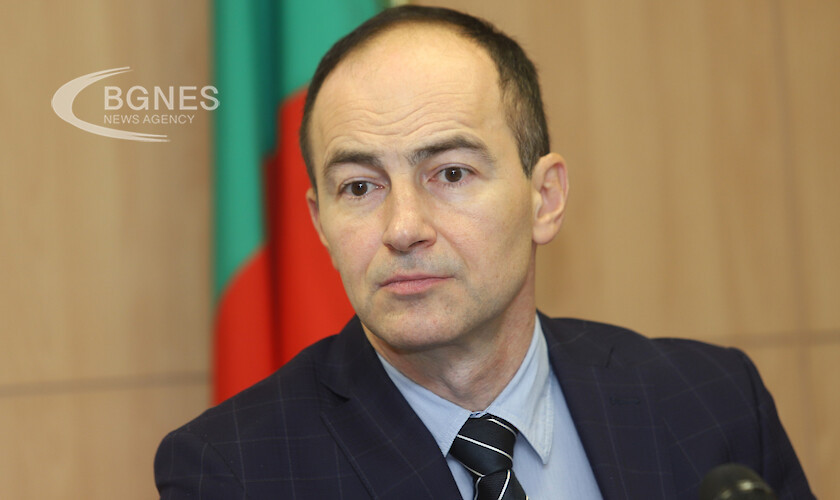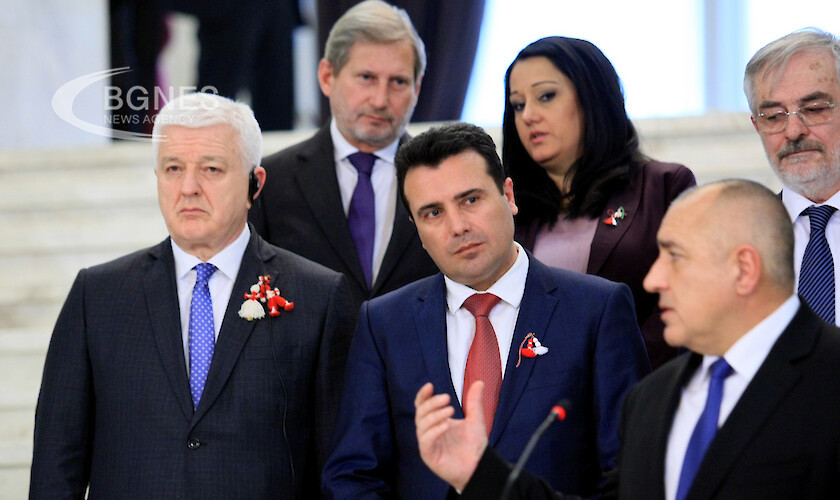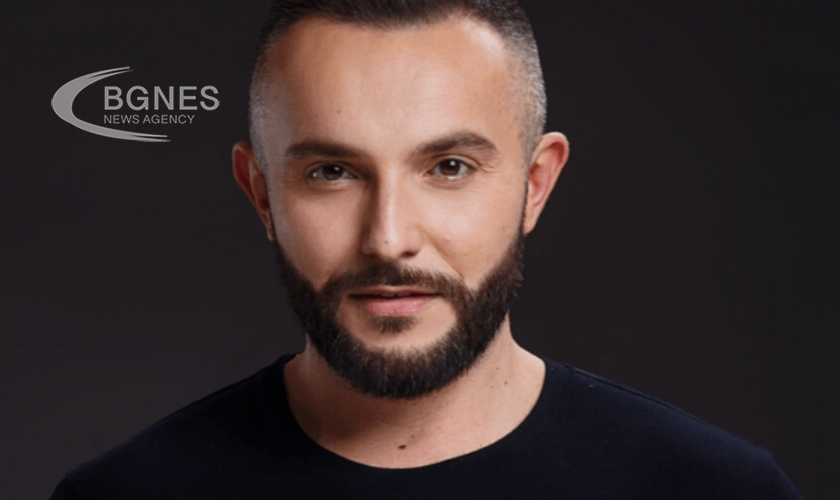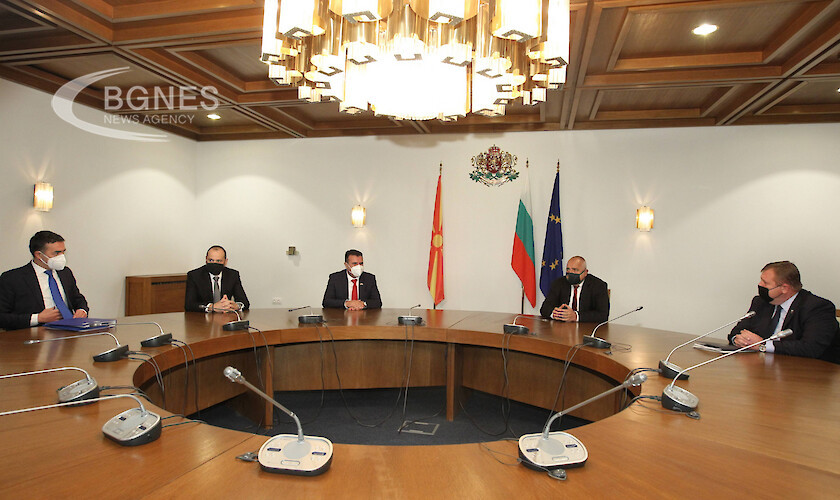Andrey Kovatchev: From the Berlin Congress to Zaev – Suffering and Injustice
Historically speaking, it was the remaining of the geographical area of Macedonia within the Ottoman Empire after the Berlin Congress in 1878 that marked the beginning of the so-called "Macedonian question". It contributed to the great suffering of the Bulgarians living in this region at the time, who represented the majority of the then population.

Bulgaria has always supported with all its might and by all means, even at the risk of its own existence, the struggle of the Macedonian Bulgarians for autonomy, liberation and independence in accordance with what was happening on the world stage from the beginning of the 19th to the middle of the 20th century.
According to all archives from this era, the largest percentage of the population of the geographical area of Macedonia is Bulgarian. The other ethnic groups in Macedonia are Greeks, Turks, Albanians, Vlachs, Roma and others. They all define themselves as "Macedonians" in the geographical sense of the word. During the time of both the Kingdom of and Communist Yugoslavia a cruel process of renunciation of the existence of the Bulgarian ethnic community took place through a lot of terror and violence. We should never forget the so-called Bloody Bozhik (Karvav Bozhik) or Bloody Christmas (Karvava Koleda) from 1945. Under the Tito regime, the process of disintegration took place. Then, with a communist decree, the Macedonian language was created based on the Bulgarian dialects from this geographical region.
After the breakup of Yugoslavia, Bulgaria immediately came to the aid of its compatriots. We first recognised the newly created state as the Republic of Macedonia, providing it with military equipment to protect itself from the potential threat from Milosevic. During the international sanctions against Yugoslavia, we provided the country with food supplies and fuel. During the civil war in 2001, Bulgaria defended the territorial integrity and sovereignty of RNM. Our first Presidency of the Council of the EU was aimed at convincing our partners in the EU of the rapid accession of all Western Balkan countries to the EU. We were one of the first to ratify the Treaty of Accession of the Republic of Northern Macedonia (RNM) to NATO.

The Treaty on Friendship, Good Neighbourliness and Cooperation with Bulgaria opened the door for the Republic of Northern Macedonia to sign the Prespa Treaty with Greece and to become a member of NATO. Bulgaria is doing - and I am sure it will continue to do - everything possible for the Republic of North Macedonia to become a member of the EU. However. Still, both sides must make the necessary efforts.
Unfortunately, even today we are witnessing the hatred instilled in Macedonia towards the Bulgarian people. The most recent example of it reaching new heights was the issue with the
representative of RNM in the Eurovision 2021 contest - Vasil Garvanliev, and the huge media hysteria against him that followed after some saw the Bulgarian tricolor in the video of his Eurovision song.
So far, more than 130,000 Macedonians have received Bulgarian citizenship based on their Bulgarian ethnic origin. As part of the process to receive Bulgarian citizenship they all have declared their Bulgarian ethnic identity. Unfortunately, the vast majority of these people fear discrimination and insults if their double citizenship becomes publicly known. Among these people there are many politicians, journalists, academics, businessmen. They all have a great fear of being "publicly sanctified" because it is still considered a "sin" to have anything to do with Bulgaria. Vasil Garvanliev is just one of the examples in this direction.
Another piece of evidence of the problems in the relations between the two countries is the pressure exercised on the citizens of the Republic of Northern Macedonia who are receiving Bulgarian books. Viktor Stoyanov, the behind the civil initiative "Send a Bulgarian book in the Republic of Northern Macedonia", was recently denied the right to deliver books to Bulgarians in RNM. Thanks to the intervention of the Bulgarian Ministry of Foreign Affairs, the initiative will continue to be implemented. Inadmissible are also the cases of pressure on Macedonian citizens from Resen, Bitola and Kochani.
In March, the European Parliament voted its annual report on North Macedonia. Two of the amendments to this report, which were adopted, should be underlined. The first one referred to earlier recommendations of the EP on the non-discrimination of people, who openly declare their Bulgarian ethnicity or origin, which still have not been implemented and the situation remains problematic to this day. The second amendment insisted on historical reconciliation, based on our common Bulgarian history, as defined in the Treaty of Friendship and Good Neighborliness.

Meanwhile, we cannot forget the series of analyses that were published by the Ljubljana-based lobbying institute with the pretentious name: "International Institute for Middle East and Balkan Studies". The purpose of these analyses is to undermine and discredit the prestige of Bulgaria, through false, distorted and manipulated information. Three of the institute's directors are former advisers to Prime Minister Zoran Zaev, and until recently the government in Skopje had contractual terms with the institute. That is why, I have insisted that Prime Minister Zaev and the RNM government immediately distance themselves from this slanderous campaign. Unfortunately, they still have not done so.
What is happening between Bulgaria and the Republic of North Macedonia is not an ordinary cultural-historical dispute, but matters of respect for fundamental human rights, non-discrimination and renunciation hate speech. Bulgaria rightly wants clear guarantees that these negative tendencies and inertia inherited from the communist past will be overcome. The young European generations in the Republic of Northern Macedonia must not receive an education based on the falsifications of history. The implementation of two aspects of the Treaty are crucial for the move forward of RNM on its path to EU accession. Firstly, it is the acknowledgement of the common history of the two present peoples and, secondly, it is the work of the Joint Academic Committee, which should be unblocked. Its task to base its work solely on the historical sources from the respective epoch should be followed-through.

Our mistake - if it can be considered a mistake - is that we deeply and naively believed that together the two countries would be able to solve this historical problem. Over the last 30 years, we never thought of escalating the problem to the international arena or of actively addressing the issue, or of lobbying the political and/or academic communities for our just cause. We, in Bulgaria, thought that in a brotherly fashion, with our closest people, we will be able to overcome our heavy legacy, inherited from the communist past. Unfortunately, the post-Yugoslav elite in Skopje clearly did not have such intentions and continues to invest significant resources in defamation campaigns against Bulgaria.
This is not just a national cause, but also an issue of justice and democracy. I expect that regardless of their political affiliation, the next government of Bulgaria, will follow our policies, based on the Framework Position and the declaration of the Bulgarian Parliament.
Lies, manipulation, hatred and discrimination are not European values and do not have place in the EU. They have to be overcome. The common task for all of us is to convince our partners of the fairness of our position. United we stand! /BGNES
-----------------
Andrey Kovatchev, , Member of the European Parliament.




